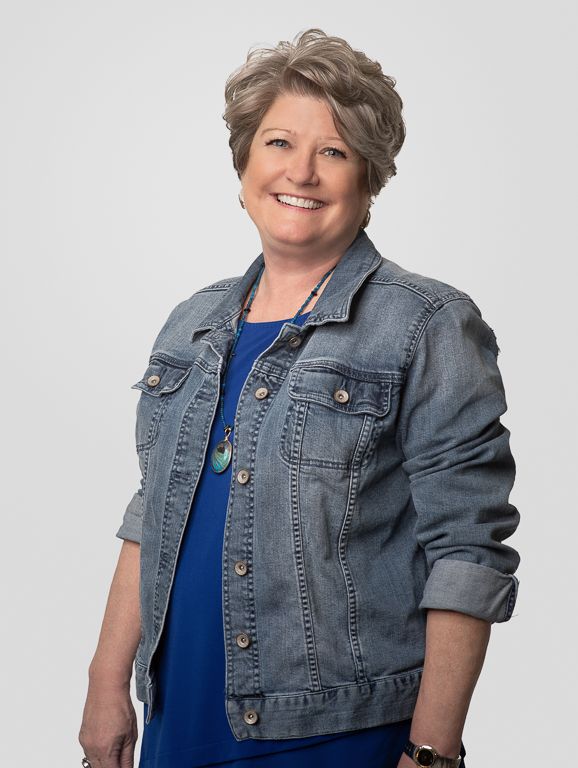
Curriculum Vitae (CV)
The Primary Care interview process has many touchpoints — the phone screen, the phone or virtual interview with the medical director, the site visit, and the negotiation and contract signing. Each stage is a prime opportunity for a Family Medicine, Internal Medicine or Urgent Care provider to discover whether the job is the right fit.
To make the most of these opportunities, a little preparation can go a long way. By reviewing responses to questions you’ll likely be asked, and preparing a few thoughtful questions of your own, you can more effectively evaluate fit and make the entire experience more productive.

~ Tracie Black, Senior Provider Recruiter, Provider Solutions & Development
“I always tell candidates: Do your homework; learn about the organization and community, and then come to your interview ready to dive in,” Tracie Black, senior recruiter at Provider Solutions & Development (PS&D) says. “There are actually a lot of job aspects specific to the Primary Care field that providers may not think about. There’s a lot of details that can really make a difference in whether you’ll be happy long term. The interview process is the place to find those things out.”
Tracie has been hiring for Primary Care positions for nearly two decades, and works with PS&D’s legacy partner, Kadlec — a leading healthcare organization in Tri Cities, Washington, that operates a hospital and more than 40 Primary Care and specialty care clinics.
Dr. Rich Meadows, Chief Medical Officer at Kadlec, agrees: the interview is the time to dive into the details that will help you discover fit.
“Don’t be afraid to ask questions,” Dr. Meadows says. “And I would add: Be yourself! I actually think that’s the most important thing. Be authentic. Let your personality and quirkiness show. Those are the things that make you, you. And that will help both you and the employer determine if you’re a good fit. There are so many Primary Care jobs out there. It’s important to find the right one.”
Tracie, who recruited Dr. Meadows in 2014 and now recruits physicians and advanced practice providers (APPs) for him, offers the following insights on the questions you’ll hear in the Family Medicine or Internal Medicine interview, as well as what questions you should be sure to ask.
(Are you exploring your career options? Search available Primary Care roles on our job site)
The 5 most common physician and APC interview questions, below, are the foundation of any provider interview.
But, Tracie says, there are more detailed questions, specific to the Primary Care interview, that are important to prepare for:
1. What does your perfect schedule look like?
Sometimes in Family Medicine or Internal Medicine, a recruiter can negotiate on your behalf for four 9-hour days. Or, if it’s an Urgent Care position, and you aren’t willing to work three 12-hour shifts, that’s good to get ironed out right away.
2. Do you want to do any inpatient work?
At some health systems, Primary Care physicians pick up emergency room shifts. But others only have emergency-trained physicians in their emergency department. This is good to clarify in the interview process to set realistic expectations.
3. What does your ideal Primary Care practice look like?
This is your opportunity to talk about the kind of team, culture, patient population and work-life balance you’re looking for. Don’t hold back — the more honest and authentic you are, the more likely you are to secure the right fit.
4. In your Primary Care practice, do you want to do procedures?
Talk about the type of procedures you want to do, what type you’re qualified for, and which ones you enjoy most. Be sure to mention if there are some you don’t want to do.
5. Are you looking for any assistance with student loans? Are you aware of what your options are?
If you're applying at a non-profit, there are often programs you can get involved in that will help you pay your loans back quicker, plus more loan forgiveness options.
6. Do you need immigration sponsorship?
If you do, you’ll want to know if the organization is eligible to provide sponsorship. Your recruiter will know this, and they can also notify the medical director to get the process started.
7. Do you want to do obstetrics in Primary Care practice?
Some clinics will let Primary Care providers practice OB, but others won’t, because they may not be structured with the type of hospital privileges or support staff to make obstetrics care financially or logistically possible.
8. What kind of compensation structure are you looking for?
In Primary Care, there is often a base guaranteed pay, and anything beyond that is production-based pay. If you want to be busy and you’re efficient, you can earn a higher salary under this structure. It’s important to understand if there is a productivity component where you’re interviewing. You will also want to know if there are value-based incentives as part of the compensation.
9. If you relocate, is there anybody else coming with you who may be seeking employment?
Employers will ask this because if your spouse is a neurosurgeon, for example, and there’s no opportunity for that in the health system you’re applying to, it’s good to know upfront. Recruiters can often help in these instances, by connecting your spouse or partner with another organization in the community that may have a need for their specialty.
10. What kinds of things do you like to do for fun?
Employers are looking for a long-term fit, and they want to know whether their location will offer enough of what’s important to you in your off-time as well as on the job. Community fit is especially important for Primary Care roles.
At some point in every site visit, you’ll have a panel interview, and inevitably at the end, the tables will turn, and perhaps the medical director will ask, ‘Do you have any questions for us?’

~ Dr. Rich Meadows, Chief Medical Officer, Kadlec
Especially for the Primary Care provider, this is your opportunity to get all your questions answered, and Tracie says it’s important not to hold back.
There are the basic questions you should ask in every interview:
And then there are the more detailed questions, that drill down into the nuances of working in Primary Care:
1. What will the expectations be for me?
Tracie suggests asking specifically how many patients a day you will be expected to see.
2. What kind of support is there?
It’s a good idea to clarify if there is APP support, a referral coordinator and whether you get your own medical assistant (MA). If you get busy enough, ask if you can have two MAs. Don’t worry about appearing pushy. You’re simply asking.
3. Is there flexibility when it comes to working hours?
For example, if you’d like to take a midday break to see your child perform at a school assembly, ask how much notice you would need to give for this kind of time off, or if it is even allowed.
4. What does rounding look like?
If you’re applying at a traditional Primary Care practice, where you’ll be rounding in a hospital, you’ll want to know the details of what will be expected of you.
5. What does the call schedule look like?
You’ll want to find out what the call ratio is. At some clinics, it’s one in four; at others, it’s one in eight or one in 12. Some health systems do one week at a time; others do one weekend every six weeks, plus one evening every two weeks. Don’t be afraid to ask about specifics, like when you’re on call, is it limited to phone calls or will you be expected to go into the hospital? Ask if there’s a hospitalist program or a pediatric hospitalist program. All of these factors will affect your schedule and potential work-life balance.
6. What does OB care look like?
If you’ll be practicing obstetrics, you’ll want to find out if you can always deliver your patients’ babies, or if it’s on a call basis. Ask who does circumcisions and who does C-sections. Will you be able to do your own procedures and surgeries? What kind of back-up will you have?
7. Can you tell me about specialty support?
It’s important to find out if the clinic or medical group has ample Gastroenterology, Cardiology and Urology specialists. This will directly affect you in the event a patient has an emergency, like a GI-bleed, in the middle of the night.
8. What does your tail insurance cover?
Find out if the practice will provide tail coverage for you or if you’ll have to pay for your own. Ask what your malpractice coverage will look like. Specifically, what are the dollar amounts that the insurance will cover? Is it a claims-made or occurrence policy?
9. Do you have Urgent Care?
You’ll want to know what happens to your patients if you’re booked up. Knowing whether you can send them to Urgent Care in those instances is good to know upfront.
10. Do you have a value-based incentive and production model for compensation?
This is an important one. If they do, be sure to ask what the production threshold is. Ask what the wRVU rate is. If there are quality metrics involved, ask what those are as well.
When you walk away from your interviews and site visit, Tracie says you should have a very clear idea of whether that particular job is for you.
“If you do it right, you should have all your questions answered and know whether you want to work and live there,” she says. “I’ve worked with hundreds of candidates over the years, and I always tell them, ‘Now’s your time. Ask everything you want to ask and tell them exactly what you’re hoping for. The more you can determine at the outset, the more at peace you’ll feel with your decision.”
At Provider Solutions & Development, we specialize in Primary Care roles, hiring Family Medicine and Internal Medicine physicians as well as nurse practitioners and physician assistants into jobs across the country.
Founded and owned by Providence, we recruit for hundreds of jobs within its seven-state footprint, in addition to Primary Care and Urgent Care roles for dozens of partners nationwide. We’ve helped thousands of providers find their next Primary Care opportunity.
Are you looking for your next Primary Care job opportunity? We can help you find the right fit the first time, at every stage of your career. Reach out today to get started.